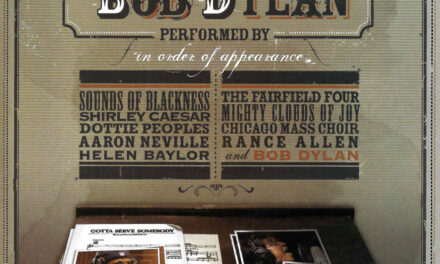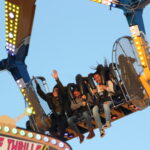By Danny R. Johnson – Jazz and Pop Music Critic

NEW YORK, NY – On March 29, 1992, jazz stylist, singer, producer, composer and educator Betty Carter gave an electrifying performance at Jazz at Lincoln Center in a program entitled “The Music Never Stops.” Flash forward 27 years later to March 29, 2019, with the release of Blue Engine Records’ “Betty Carter: The Music Never Stops” cd, which catalogues previously unreleased music from that March 29, 1992 concert and features Carter at her stylistic peak, is now available for the world to hear and enjoy!
The historic cd spotlights the musicians perfectly and Carter is captured on ‘The Music Never Stops’ as representing perhaps the best of her musical talents. The concert featured a full jazz orchestra, a string section, and three distinct piano trios, Carter delivered a spectacular performance which is available to be shared with her millions of esteemed admirers and fans the world over. The orchestra cast of gifted musicians Carter enlisted included such musical giants as Robin Eubanks, Art Baron, Jerry Dodgion, Alex Foster, and Lew Soloff. Pianists John Hicks, Geri Allen, and Cyrus Chestnut; bassists Lisle Atkinson and Ariel Roland; and drummers Kenny Washington, Greg Hutchinson, and Clarence Penn topped off the three rocking rhythm sections.
Arguably the most innovative jazz singer from the 1940s and certainly she was a major influence on the generations that followed, Carter constantly took chances and managed to come out on top. She often interpreted ballads at remarkably slow tempos and then follow up by racing her way through a standard that she would ruthlessly deconstruct. All you have to do is listen to “Why Him?/Where or When/What’s Next?” and you’ll get a taste of this Carter technique. And she loved sliding between notes, and changing tempos, songs and moods on a moment’s notice…never playing it safe, which of course drove a many of her band members crazy!
“Betty Carter: The Music Never Stops” demonstrates the multiplicity of Carter’s range and mood. Sometimes she could sound sarcastic as in the “Tight/Mr. Gentleman” but on other numbers such as “Moonlight in Vermont” she can be unexpectedly sweet and sanguine. The name of one her old albums from 1991, “It’s Not About The Melody,” seemed to express her musical philosophy perfectly.

Born in 1930 as Lillie Mae Jones, she studied piano and began working as a vocalist in Detroit in 1946. Early on she was attracted to bebop and had the opportunity to sit in with Charlie ‘Bird’ Parker. A potential big break was being the principal singer with the Lionel Hampton Orchestra during 1948-51. She was known at the time as Lorraine Carter. However, Hampton nicknamed her “Bebop Carter” due to her love for bop and she eventually adopted Betty as her first name.
There was never a convenient pigeonhole for Betty Carter. She said repeatedly that she hated being pegged with the term “bebop.” Perhaps she had more in common, musically, with the instrumentalists’ beboppers than any other group, but Carter was much further along than any other singer who worked in the company of Dizzy Gillespie or James Moody. Did she belong to the jazz avant-garde? Carter herself repeatedly said no…she employed familiar chord changes and regular, metrical rhythms. Her use of very long, very abstract improvisations seemed to place her on the fringe rather than in the mainstream. Yet her instrument was not the equal of Ella Fitzgerald’s or Mel Tormé’s, and she occasionally hit notes that were under pitch. Even this though was a matter of perspective. Did Carter have her own highly personalized intonation, or was she just singing flat? With a singer as consistently challenging and exciting as Carter, did it even matter?
“Betty Carter: The Music Never Stops” is positioned at the crossroads of Carter’s career. The album captures her at a moment where she sounds the same on her albums of the 1980s-1990s; the voice has deepened but still has that tight, pinched, almost blossom like sound that made her early works so appealing. In the Cole Porter classic, “Most Gentlemen Don’t Like Love,” Carter teamed up with Cyrus Chestnut (piano), Ariel Roland (bass), and Clarence Penn (drums) to completely overhaul the song.
Carter died on September 26, 1998, at the age of 69 from complications of pancreatic cancer. And up to the point of her death, Carter for at least 20 years, was by far the most celebrated female vocalist in jazz. She was universally championed by the alternative media, especially the Village Voice and jazz press gatekeepers. Even though Ella Fitzgerald, Joe Williams, Anita O’ Day, Carmen McRae, and others were active through most of these years, Carter seemed to be virtually the only jazz singer who was regarded as up-to-minute and cutting edge. Everybody on Planet Jazz knew who she was and had an opinion regarding her, which was usually overwhelmingly positive.









